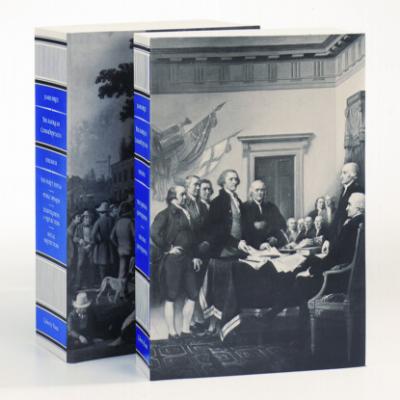The American Commonwealth. Viscount James Bryce
Читать онлайн.| Название | The American Commonwealth |
|---|---|
| Автор произведения | Viscount James Bryce |
| Жанр | Историческая литература |
| Серия | |
| Издательство | Историческая литература |
| Год выпуска | 0 |
| isbn | 9781614871217 |
I. Exclusions of a subject from legislative competence, i.e., prohibitions to the legislature to pass any law on certain enumerated subjects. The most important classes of prohibited statutes are:
Statutes inconsistent with democratic principles, as, for example, granting titles of nobility, favouring one religious denomination, creating a property qualification for suffrage or office.
Statutes against public policy, e.g., tolerating lotteries, impairing the obligation of contracts, incorporating or permitting the incorporation of banks, or the holding by a state of bank stock.24
Statutes special or local in their application, a very large and increasing category, the fulness and minuteness of which in many constitutions show that the mischiefs arising from improvident or corrupt special legislation must have become alarming. The lists of prohibited subjects in the Constitutions of Missouri of 1875, Montana and North Dakota of 1889, Mississippi of 1890, and Oklahoma, 1907, are the most complete I have found.25 Oklahoma enumerates twenty-eight topics, special legislation on which is forbidden.
Statutes increasing the state debt beyond a certain limited amount, or permitting a local authority to increase its debt beyond a prescribed amount, the amount being usually fixed in proportion to the valuation of taxable property within the area administered by the local authority.26
II. Restrictions on the procedure of the legislature, i.e., directions as to the particular forms to be observed and times to be allowed in passing bills, sometimes all bills, sometimes bills of a certain specified nature. Among these restrictions will be found provisions:
As to the majorities necessary to pass certain bills, especially appropriation bills. Sometimes a majority of the whole number of members elected to each house is required, or a majority exceeding a bare majority of those present.
As to the method of taking the votes, e.g., by calling over the roll and recording the vote of each member.
As to allowing certain intervals to elapse between each reading of a measure, and for preventing the hurried passage of bills, especially appropriation bills, at the end of the session.
As to reading of bills publicly and at full length.
As to sending all bills to a committee, and prescribing the mode of its action.
Against secret sessions (Idaho).
As to preventing an act from taking effect until a certain time, e.g., ninety days after the adjournment of the session.
Against changing the purpose of a bill during its passage.
As to including in a bill only one subject, and expressing that subject in the title of the bill.
Against reenacting, or amending, or incorporating, any former act by reference to its title merely, without setting out its contents.27
The last two classes of provisions might be found wholesome in England, where much of the difficulty complained of by the judges in construing the law arises from the modern habit of incorporating parts of former statutes, and dealing with them by reference.28
Where statutes have been passed by a legislature upon a prohibited subject, or where the prescribed forms have been transgressed or omitted, the statute will be held void so far as inconsistent with the constitution.
Even these multiform restrictions on the state legislatures have not been found sufficient. Bitted and bridled as they are by the constitutions, they contrive, as will appear in a later chapter, to do plenty of mischief in the direction of private or special legislation.
Although state legislatures have of course no concern whatever with foreign affairs, this is not deemed a reason for abstaining from passing resolutions on that subject. The passion for resolutions is strong everywhere in America, and an expression of sympathy with an oppressed foreign nationality, or of displeasure at any unfriendly behaviour of a foreign power, is not only an obvious way of relieving the feelings of the legislators, but often an electioneering device, which appeals to some section of the state voters. Accordingly such resolutions are common, and, though of course quite irregular, quite innocuous.
Debates in these bodies are seldom well reported, and sometimes not reported at all. One result is that the conduct of members escapes the scrutiny of their constituents; a better one that speeches are generally short and practical, the motive for rhetorical displays being absent. If a man does not make a reputation for oratory, he may for quick good sense and business habits. However, so much of the real work is done in committees that talent for intrigue or “management” usually counts for more than debating power.
Конец ознакомительного фрагмента.
Текст предоставлен ООО «ЛитРес».
Прочитайте эту книгу целиком, купив полную легальную версию на ЛитРес.
Безопасно оплатить книгу можно банковской картой Visa, MasterCard, Maestro, со счета мобильного телефона, с платежного терминала, в салоне МТС или Связной, через PayPal, WebMoney, Яндекс.Деньги, QIWI Кошелек, бонусными картами или другим удобным Вам способом.
